B-- Breakfast L-- Lunch D-- Dinner
-
Day 1 Kunming Arrival
Welcome to Kunming! Upon arrival at the airport or train station, your tour guide will meet you and escort you to your hotel. For the rest of the day you will be free to walk around in the fascinating spring city on your own.
Accommodation:
-
Day 2 Kunming - Lijiang ( B )
After breakfast, drive about 85km to the renowned UNESCO World Nature Heritage - Stone Forest, a huge collection of grey limestone pillars. Being weather-beaten for millions of years, the stones turn intricate formations and precious geological relics. There are many interesting legends about Stone Forest. The most famous one goes like that the immortals shattered a mountain into a labyrinth when the lovers who were seeking privacy. In fact, apart from stone forests, the whole scenic area presents various views, including karst caves, waterfalls, underground rivers etc. Walking into the maze and feasting on the natural masterpieces, you will have a compulsive desire to make a complement on uncanny workmanship of nature.
After the sightseeing, drive to the airport to take your flight to Lijiang.
Accommodation:
-
Day 3 Lijiang ( B )
Today, your first stop is Jade Dragon Snow Mountain with 13 peaks shaping like a lying jade dragon. It soars to 5596m above the sea and presents breathtaking scenery and pristine glaciers all the year round. On route, you will encounter 2000-year-old Ganhaizi with luxurious sorts of plants. In the mountain, the beautiful Blue-Moon Valley will give you a visual treat by its blue or milky water depending on the weather. For further sightseeing, take the tramway to mysterious Spruce Meadow and get a panoramic view of the Jade Dragon Snow Mountain.
After conquering Jade Dragon Snow Mountain, drive to Baisha Town to admire the exquisite Baisha Mural Painting. The mural paintings are an artistic representation of communication between various religion and art sects. It also embodies a kind of life of Naxi people with the satiate structures and abundant colors. Then go to visit the Museum of Naxi Dongba Culture. Built in shape of Naxi quadrangle courtyard, the museum itself is also attractive. In the museum, you will appreciate the cherished relics, and learn more about the attractive folklore & culture of Naxi people. After that, follow your trip to the scenic Black Dragon Pool Park where there are well-proportioned ancient buildings, towers, bridges and arches. These plants in bloom will catch your eyes as well.
Optional Activity: experience the splendid live-action performance Impression Lijiang directed by world-famous director – Zhang Yimou. (12:25, 14:00 in Off Seasons; 12:25, 14:00, 11:10 in Peak Seasons).
Accommodation:
-
Day 4 Lijiang - Shangri-La ( B )
Today you’ll be driven to the old town of Shigu (Stone Drum) which is famed for a drum-like stele made by white marble. It enjoys high strategic and traffic significance in China’s history that many troops struggled for. You will take a visit to the Iron Chain Bridge which the Red Army used to cross the river during the Long March in 1930s. Then head to the stunning First Bend of the Yangtze River. Here you can witness the three rivers (Yangtze River, Lancang River and Nu River) traversing through the valleys of Hengduan Ranges, and forming this breathtaking view.
The last place of Lijiang to visit is marvelous Tiger Leaping Gorge - one of the deepest gorge and one of the ten most classic trekking trails in the world. Legend says that it is named after a courageous tiger who jumped across the rushing river to escape from a hunter. Take a little challenging trek to stretch your legs as well as glut your eyes with most naturally picturesque and distinctive landscape.
Later, you’ll drive about 100km to Shangri La. You’ll enjoy the enchanting natural scenes on the way.
Tips: 1) prepare comfortable strong walking shoes, light shirts and warm jackets; 2) bring sun creams to protect you from sunlight; 3) pack with enough water.
Accommodation:
-
Day 5 Shangri-La ( B )
Firstly described in the well-known novel Lost Horizon by James Hilton, Shangri-La is a permanently joyous paradise isolated from the earthly world. The people live happily and contently there. Today, you will have a full day to explore its mystery and beauteousness.
After breakfast, pay a visit to the Songzanlin Lamasery – the largest Tibetan Buddhist lamasery in Yunnan. It is reputed as “Little Potala Palace” for its faithful imitation of the Potala Palace. In addition to perfect pattern of architecture, Songzanlin Lamasery also offers fine murals and magnificent Buddhist statues. While prayer flags are fluttering and the bells are tinkling, you will get an otherworldly peace of mind in the lamasery and understand how the simple Tibetan keeps their pure and religious belief in this temporal world.
Later you will drive to Potatso National Park and intoxicate yourself with the primitive landscape, including wetland, meadow and rare flora and fauna. Take a leisurely walk beside the beautiful Bitahai which is the highest lake in Yunnan Province. With captivating snow-mountain, green forest and bluish sky reflected in the water, Bitahai looks like a magical mirror. After feasting on the good views, walk to Shudu Lake where you can see scads many flocks and herds grazing in the field.
In the evening, pay a visit to a local Tibetan family and experience the highly-praised hospitality of Tibetan people.
Tips: 1) dress modestly, behave with good manner and ask for permission if you want to take pictures of monks or pilgrims; 2) the altitude of Bitahai is 3,538m, and avoid strong activity to avoid high altitude sickness; 3) you can choose to take a boat sailing on Bitahai or Shudu Lake for a more relaxed sightseeing.
Accommodation:
-
Day 6 Shangri-La - Lhasa ( B )
After breakfast, your local guide escorts you to the airport for your flight to Lhasa (about 2 hours flight). Remember to look out the window! Along the way you'll be treated to breathtaking views of Tibet's snow-capped mountains.
Welcome to the roof of the world! You will be picked up by local tour guide at the airport hall or train station, then be escorted to your hotel in Lhasa city in a private vehicle.
After arrival at your hotel, the rest of the day is free for you to explore the local areas and acclimatize yourself to the air, temperature and high altitude of Lhasa.
High Altitude Acclimation Tips:1) go for some leisure walking to acclimate the high altitude but avoid strenuous activity after arrival; 2) you'd better not have bath, in case of catching a cold; 3) drink more water, and have some fruit; 4) have a good rest...
Accommodation:
-
Day 7 Lhasa ( B )
Start today’s Lhasa exploration with an exciting visit to the landmark - Potala Palace which is regarded as one of the most beautiful architectural building in the world. You will climb up the palace along the zigzag stone paths with white-and-red walls to the top of the palace where you can not only appreciate the exotic Tibetan-style architecture, but also get a great view of Lhasa’s urban areas, then walk into the inner space of Potala Palace to explore the stately chapels and learn about the history of the palace.
Continuing your exploration, you will then get to Jokhang Templewhich is considered as the spiritual heart of Tibetan Buddhism. Each day, there are thousands of pilgrims coming from different places in Tibet to the temple to worship to the Buddha. This temple is also known as the “house of Buddha” because it keeps the precious Jowo Rinpoche, the life-sized (5 foot/1.5m) image of the Shakyamuni at the age of 12. The last site for today’s exploration is the famous Barkor Street. It is a circular and wide street encircling the Jokhang Temple. The local people like to walk on the street for several circles usually in the late afternoon as a daily tradition of pilgrimage. The street also has many shops selling a wide variety of traditional Tibetan goods, religious items and handcrafts.
Tips of today: 1) there are 1,080 steps up to climb to the top of Potala Palace, so don’t walk in a rush, which may cause high altitude sickness; 2) taking photos is not allowed inside the palace; 3) today you will be mainly outside, please bring some water, a hat, sun cream, and sun glasses with you.
Accommodation:
-
Day 8 Lhasa ( B )
After breakfast, you will firstly go to visit the beautiful Norbulingka which used to be the former summer palace of Dalai Lamas in the ancient time, and now is a public park. It is famous for its Potrang, the private palaces of former Dalai lamas with grandiose Tibetan architecture style. Next, drive several kilometers to the western outskirts of Lhasa to visit Drepung Monastery. Drepung, in Tibetan, means “prosperity”. Since its establishment, Drepung Monastery has always been one of the most important Buddhist monasteries in Tibet. In its heyday, there were more than 10,000 monks lived and studied in the monastery. Throughout its history, many important and famous Tibetan leaders used to study here, especially the Dalai Lamas. So Drepung Monastery is also respectfully known as the “Mother School of Dalai Lamas”.
In the afternoon, you will be taken to another famous monastery in Lhasa - Sera Monastery. It is famous for the spectacular “Buddhism Debating”. As a daily routine, the monks gather in a courtyard, and debate on the Buddhist doctrines with supplemented gestures, which is thought to be helpful to facilitates better comprehension of the Buddhist philosophy to attain higher levels of study. After enjoying the "Buddhism Debating", you will be transferred back to the city. The rest time is your own free time to rest.
The Etiquette of Visiting Monastery: 1) you shouldn’t wear short and uncover shoulders; 2) taking off your sunglasses and hat before entering the chapels; 3) taking photos is usually not allowed inside the chapels.
Accommodation:
-
Day 9 Lhasa - Namtso - Lhasa ( B )
Want to explore some other features of Tibet instead of the monasteries? Let's take an exciting trip to the holy lake Namtso which is about 5 hours driving from Lhasa City. You will arrive at Namtso Lake around the early afternoon. Take some rest and throw yourself into the incredible landscape of holy lake.
Namtso Lake is the highest saltwater lake in the world with an altitude of 4718 meters, also the second largest saltwater lake in China (after the Qinghai Lake). It’s quite common for tourists who are awestruck at the Namtso at the first sight. With the snowy mountains in the background, the crystal-clear dazzling blue water, Namtso is stretching to the horizon. In clear days, the lake looks like a beautiful turquoise surrounded by magnificent snow-capped Tanggula Mountains, and the lakeshore is green, wide and open, dotted with tents, yaks and sheep of local nomads. For travelers, Namtso is the ideal place for photography, while for Tibetans, it is a scared and magical lake for pilgrimage.
Lastly, drive back to Lhasa for accommodation.
Tips of today: 1) the altitudes of Namtso Lake region is about 5, 000 meters, so you should be fully prepared for high altitude sickness. Do remember to keep warm all the time and avoid strenuous activity; 2) if you want to spend longer time and watch sunset and sunrise, you can also accommodate at Namtso for a night, but the accommodation condition is very basic, so is the food supply.
Accommodation:
-
Day 10 Lhasa Departure ( B )
Today is free for you until your tour guide transfer you to the airport in time for your flight or drop you off at Lhasa train station.
Tips of Today: 1) please pack your luggage carefully, especially for small things like camera charger, power adaptor, mobile phone, phone charger, wallet and towel; 2) if your flight is arranged in the afternoon, please make sure you check out the hotel before 12pm.
Accommodation:

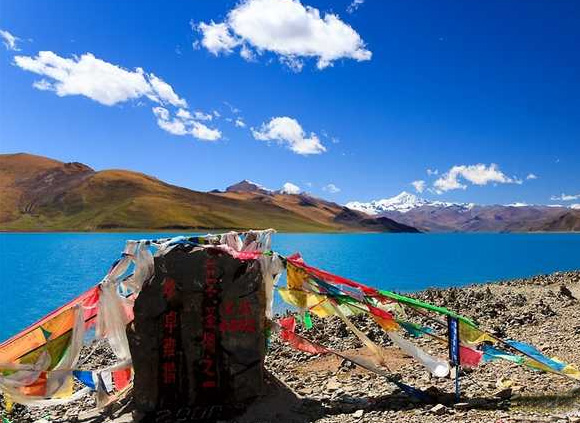 4-Day Lhasa Join-in Group Tour
4-Day Lhasa Join-in Group Tour 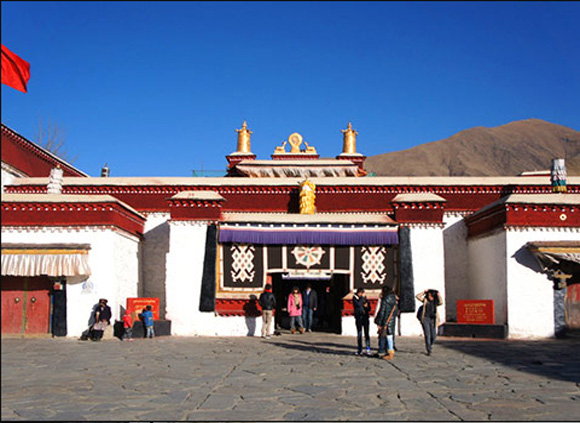 14 Days Mt. Kailash Trekking & EBC Tour
14 Days Mt. Kailash Trekking & EBC Tour 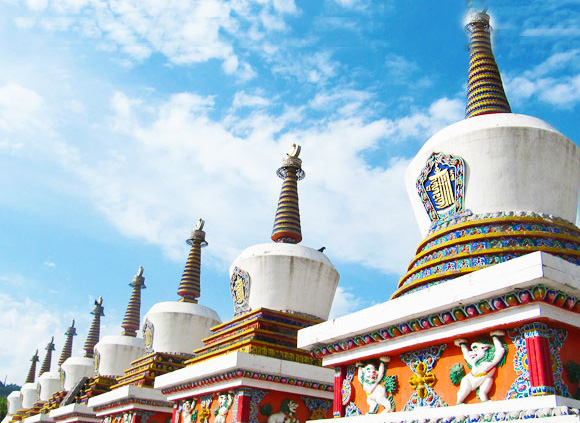 6 Days Lhasa and Ganden Monastery Leisure Trek Tour
6 Days Lhasa and Ganden Monastery Leisure Trek Tour 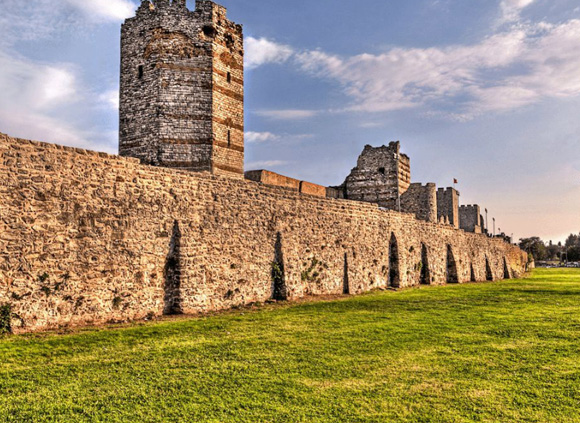 6 Days Tsedang Short Tour
6 Days Tsedang Short Tour 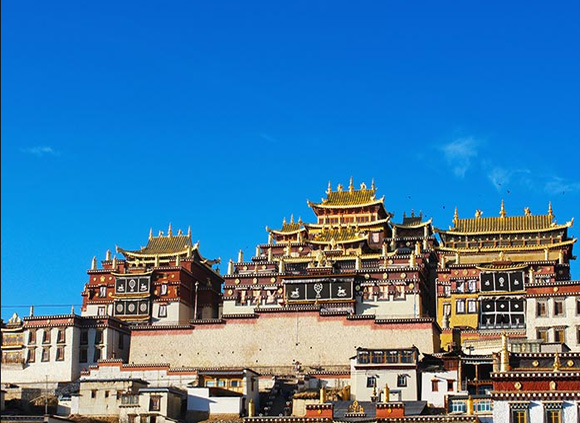 6 Days Nagchu Horse Racing Festival Tour
6 Days Nagchu Horse Racing Festival Tour 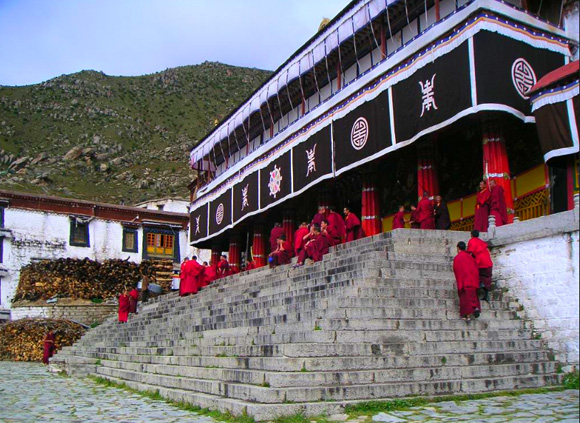 10 Days Chengdu – Xining – Lhasa Tour by Train
10 Days Chengdu – Xining – Lhasa Tour by Train 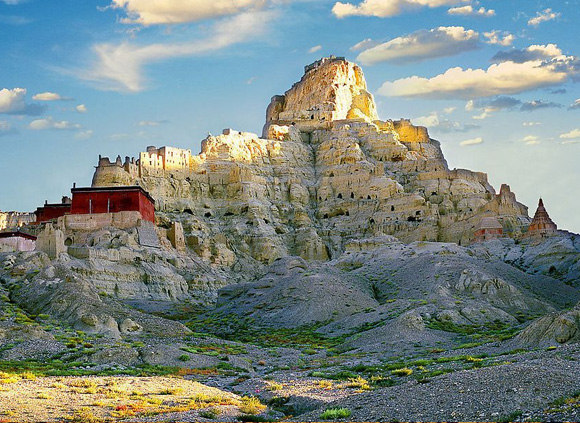 8 Days Lhasa to Namtso Lake Biking Tour
8 Days Lhasa to Namtso Lake Biking Tour 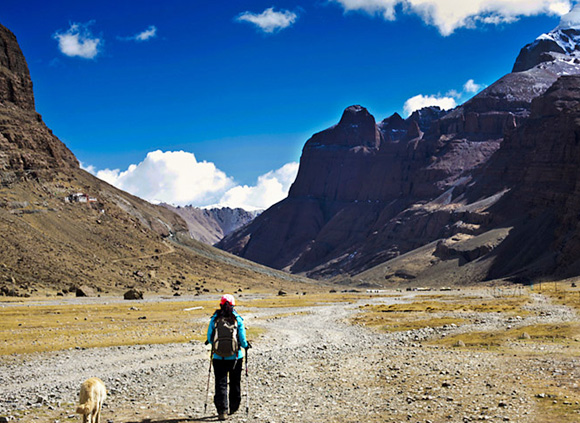 12 Days Tibet Trekking Tour from Old Tingri to EBC
12 Days Tibet Trekking Tour from Old Tingri to EBC 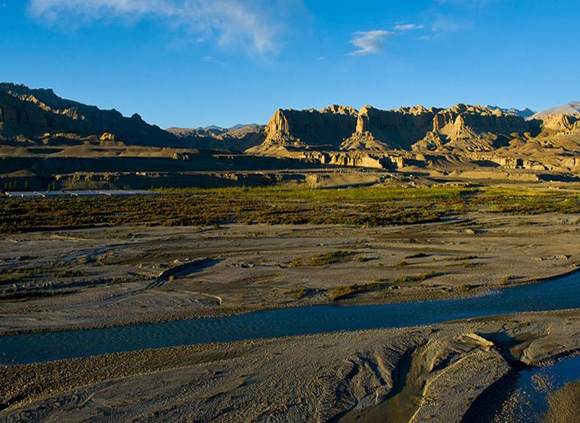 8 Days Lhasa-Shigatse-EBC-Group Tour
8 Days Lhasa-Shigatse-EBC-Group Tour 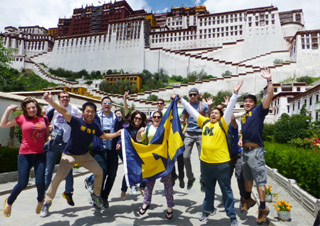
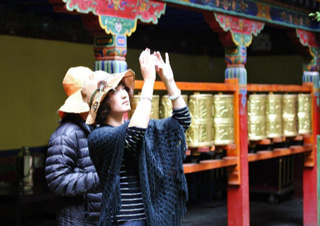
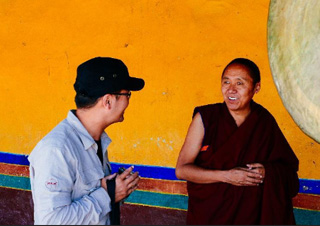
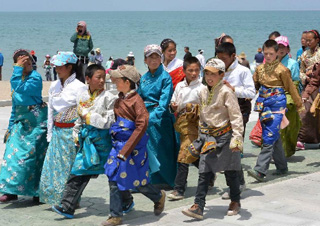
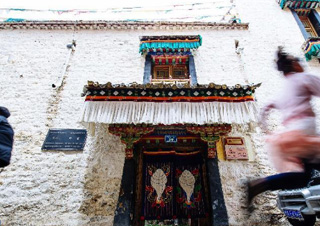
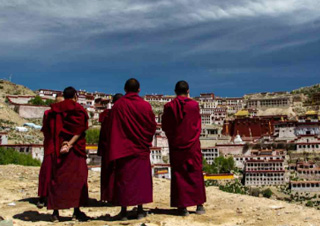
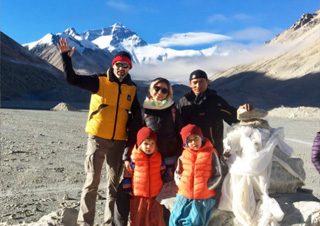
 Data in submission...
Data in submission...


